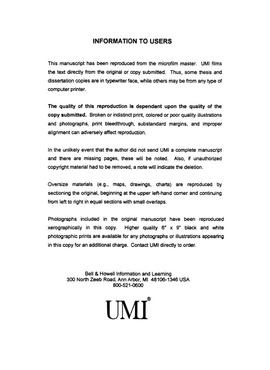| dc.contributor.advisor | Buckley, Michael Ronald, | en_US |
| dc.contributor.author | Beu, Danielle. | en_US |
| dc.date.accessioned | 2013-08-16T12:31:12Z | |
| dc.date.available | 2013-08-16T12:31:12Z | |
| dc.date.issued | 2001 | en_US |
| dc.identifier.uri | https://hdl.handle.net/11244/6062 | |
| dc.description.abstract | The Ethical Decision-Making Model with Accountability proposes that various forms of accountability will influence ethical intentions, with moral intensity moderating this relationship. The model also shows that cognitive moral development, personality and demographics influence ethical intentions. The results of the empirical tests show that accountability, competitiveness, general self-efficacy and college major did not influence ethical intentions. However, moral intensity, location (school/work), cognitive moral development, hostility and aggression, locus of control, Machiavellianism and gender did influence ethical intentions as hypothesized. Perhaps a better operationalization of accountability, including extraordinarily strong accountabilities within the organization or accountabilities outside of the organization may be required to alter individual's ethical intentions. The study does confirm that aspects of the moral issue itself (moral intensity), environment (school/work) and individual differences do influence ethical intentions. | en_US |
| dc.description.abstract | Ethics influence judgments used to make decisions that are legal or morally acceptable to the larger community (Jones, 1991). Accountability (being responsible to an audience with reward or sanction power) is a mechanism through which organizations can control the conduct of their members. This study expands the ethics literature by introducing the accountability construct to current ethical models, as can be seen in the Ethical Decision-Making Model with Accountability (Figure 8). By researching and understanding why individuals behave the way they do when confronted with ethical dilemmas, academicians can enhance business practice. | en_US |
| dc.format.extent | vii, 174 leaves ; | en_US |
| dc.subject | Responsibility. | en_US |
| dc.subject | Psychology, Industrial. | en_US |
| dc.subject | Business Administration, Management. | en_US |
| dc.subject | Ethics | en_US |
| dc.subject | Business ethics. | en_US |
| dc.title | Accountability as it influences ethical behavior. | en_US |
| dc.type | Thesis | en_US |
| dc.thesis.degree | Ph.D. | en_US |
| dc.thesis.degreeDiscipline | Michael F. Price College of Business | en_US |
| dc.note | Adviser: Michael Ronald Buckley. | en_US |
| dc.note | Source: Dissertation Abstracts International, Volume: 61-11, Section: A, page: 4451. | en_US |
| ou.identifier | (UMI)AAI9994076 | en_US |
| ou.group | Michael F. Price College of Business | |
